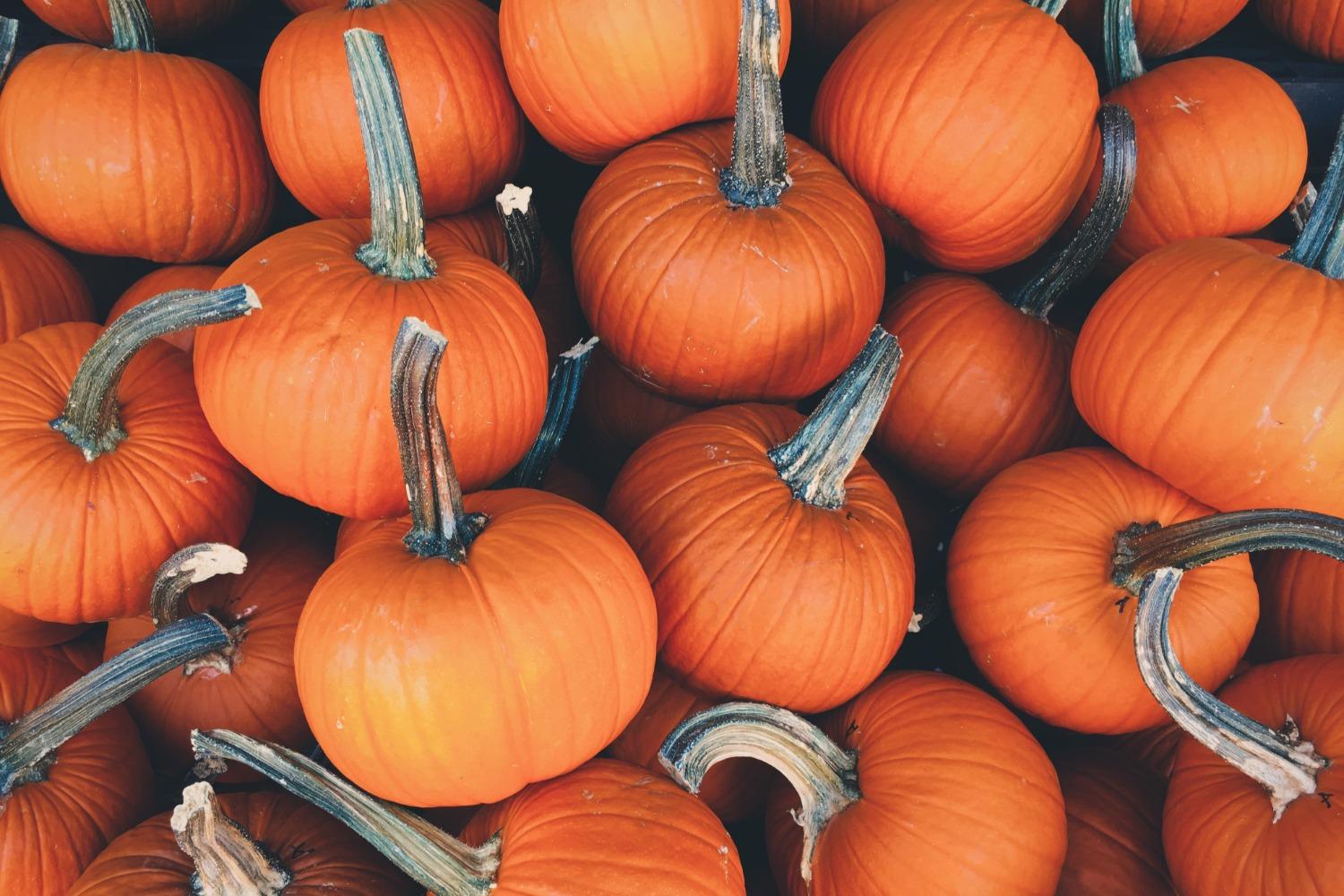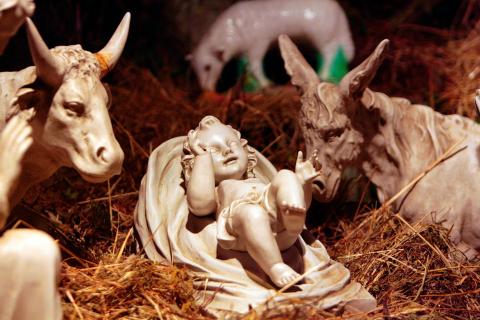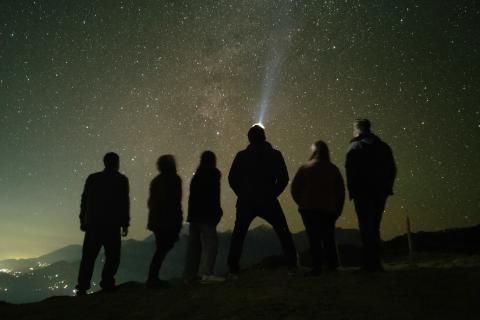
Human cultures have often marked the seasons with unique festivals. Autumn festivals celebrate a newfound abundance of food following the harvest, and midwinter festivals give cheer to the cold and dark of winter as the solstice passes and the days once again grow longer. Spring festivals celebrate the bursting forth of new life, and midsummer festivals bring people together in the midst of warmth and late sunsets (despite the fact that food supplies are running low until the harvest). Such feasts are found across countless cultures, all taking on their own forms and customs while showing forth a universal human desire to gather as a community to mark the passage of time and the cosmic order of the world.
It should come as no surprise that Christianity mapped its own feasts onto these (generally) universal holidays: Christmas was assigned to midwinter, Easter providentially falls in the spring, and the feasts of All Saints and All Souls were assigned to the harvest. Long have Christians “baptized” the cultures in which they live, sanctifying their customs with deeper Christian meanings. Consider, for instance, Halloween (the eve of All Saints). The ancient Romans had a custom of visiting the graves and urns of their dead on the anniversary of their deaths – called a refrigerium – to drink and be present to them. (In fact, many Roman burial urns had small holes that allowed the living to pour a bit of wine in for the dead.) The difficulty for Christians was that this often turned into spending the day getting drunk! Rather than speak against the practice of the refrigerium, the Church introduced the feasts of All Saints and All Souls to give context and shape to a proper celebration of and unity with our departed loved ones, assigning them to a natural time of feasting.
But as Christianity leaks out of our culture, the Christian content leaks out of our holidays. Nevertheless, the holidays more or less remain in place, especially those that map onto the traditional celebratory times of year.
From a communal standpoint, Halloween is something of a sign of social solidarity: people decorate their yards, children dress up (and the adults play along), and children are given candy as they knock on the doors of their neighbors. But feasts tend to reflect the underlying culture, and there is a dark side to our culture (due in large part to original sin) – and this feast is no different. While the presence of decorative skeletons and ghosts isn’t evidence that people are practicing witchcraft, it’s worthwhile for Christians to exercise prudence and discernment. And while the correct answer may not be pretending that Halloween doesn’t exist, something as simple as intentionally feasting for All Saints the next day will likely serve as a way for Christians to contextualize Halloween festivities and “baptize” the season.
Something similar can be said of Christmas and Advent, which are soon approaching. For many of us, Christmas Day is often anticlimactic: we have spent days or weeks in parties and celebrations, only to wake up on Christmas morning and realize that the best of the season is over. In the Christian calendar, however, Christmas Day is to be the start of a season of celebration. Notice that the re-baptizing of Christmas here requires little: rather than celebrating less, shifting our days of celebration such that they begin on Christmas (with Christmas Eve) rather than end on that day could serve as a powerful remedy. Doing so would reclaim not only Christmas but also Advent, that increasingly-unobserved season of preparation and anticipation.
As Christians living in an Apostolic Age, it is unlikely that we will single-handedly restore a Christian sense to our holidays across the culture (and it is perhaps even more unlikely that we will do so by arguing against the sorts of celebrations humanity has long used to mark the seasons). However, with simple intentional practices, we can bring back a Christian context for ourselves and our families.
In the week of Halloween, All Saints, and All Souls, three questions seem to arise naturally:
Why do Catholics pray for the dead? What can our prayers for them accomplish? (For those seeking to learn more concerning the Catholic Church’s understanding of purgatory, read Msgr. Charles Popes’ explanation here.)
Do we desire heaven above all else? Pope Francis recently challenged Christians with this question, noting that All Souls Day has long served as a reminder of the eventuality of death.
What do Christians believe about ghosts? A priest offers his own interpretation of how Christians might approach the question.
Christianity takes seriously questions of the human body. This week, a father reflects on the beauty and struggles of his son’s life with Down syndrome and offers a frank rebuttal to the notion that abortion is the answer to disabilities and health defects. (With the question of legalized abortion now falling to the states, many have lost track of the battles being waged to protect life in their own states. As efforts are being made to roll back protections for the unborn across the country, keep informed on what’s happening in your own state.)
An author responds to modern secularity’s notions of sex and gender, examining the particular case of intersex persons. “Bodies are not ‘just’ bodies. Bodies are persons made manifest.”
Admitting that the long-term risks associated with gender-transitioning treatments given to minors are still unknown, new guidelines issued by England’s National Health Service are urging caution when addressing gender dysphoria.
In the world of interreligious dialogue, a group of Catholics and Evangelicals have issued a joint declaration of the need for Christian principles to reanimate our political order. While various Christian denominations are often aware of our differences, we tend to overlook what we have in common, including our desire for a Christ-centered culture.
Pope Francis has become the first pope to visit Bahrain, a small kingdom on the Persian Gulf. Although the country of 1.5 million people is officially a Muslim nation, 161,000 Catholics live in the country, where they are served by 20 priests in two churches. In addition to visiting the Christian community, the pope will likely encourage increased dialogue between the kingdom’s Shia majority and Sunni royal family. Read more about the pope’s visit and goals for the trip from the Catholic News Agency.
Finally, the United States Conference of Catholic Bishops has announced that a new English translation of the lectionary will be used starting in 2025. Click here to learn more.


